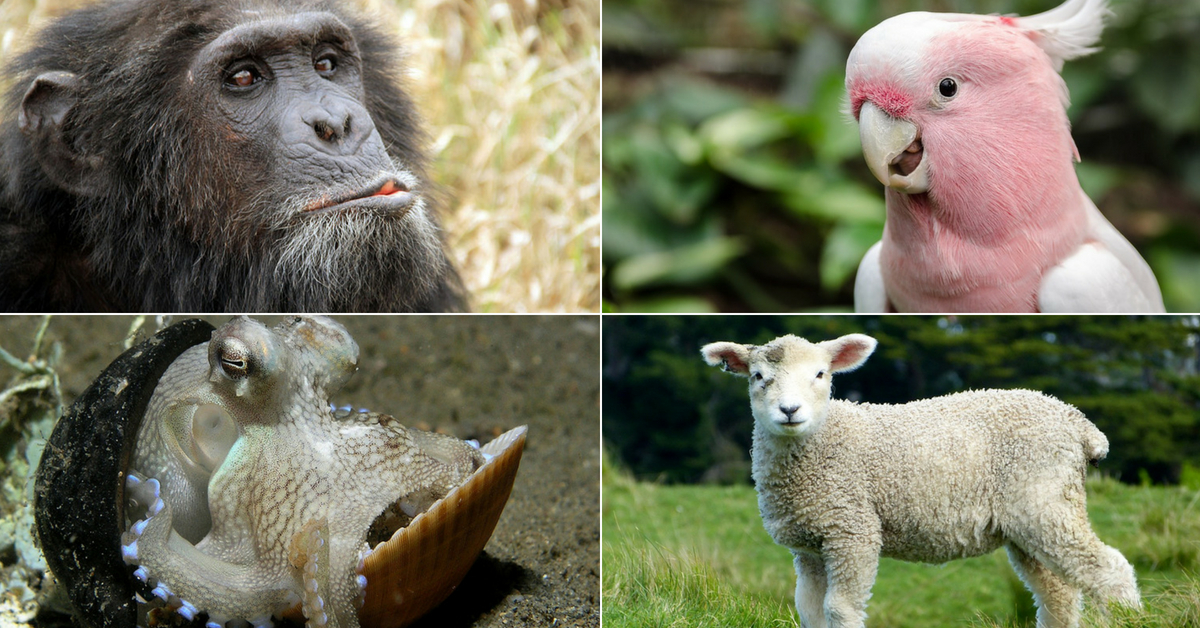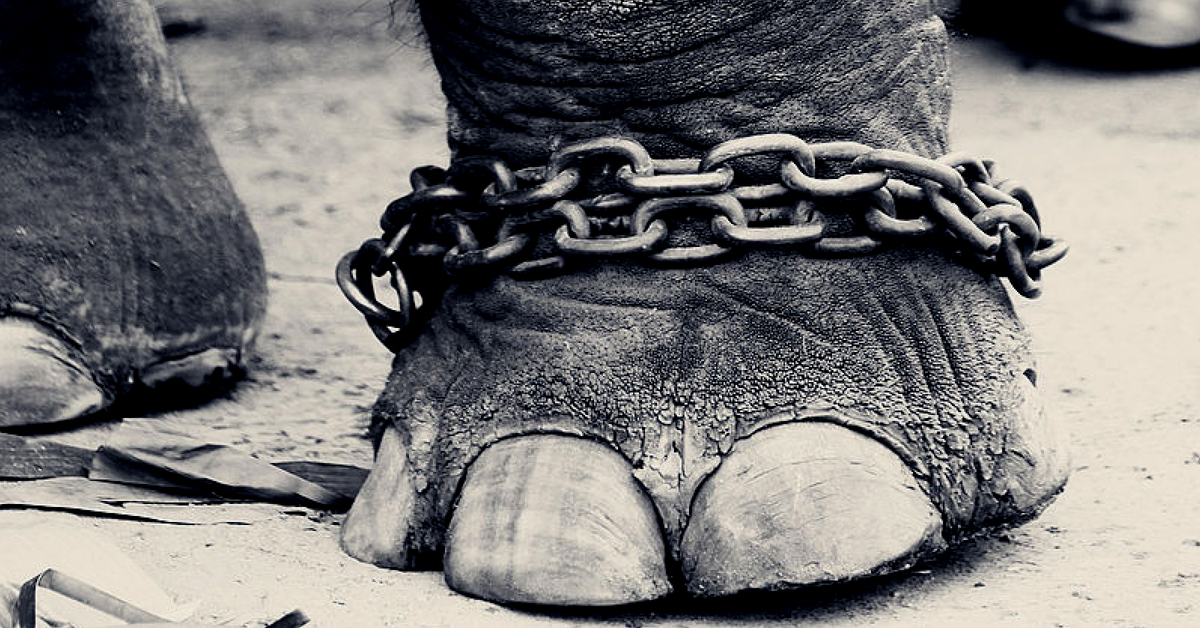Over millions of years, humans have evolved from beings of rudimentary intelligence to ones who can function in a complex societal structure and think rationally. This ability is why some consider the human species to be the most superior creature on the planet.
However, the one thing that has remained constant throughout this transition has been our exploitation of animals to meet our ever-increasing demands.
In the race to satisfy our needs and more often than not, our greed, we have essentially lost sight on one crucial fact — that animals are sentient beings with varying levels of intelligence.
But what about the rights of creatures that we, as the human race, have been exploiting all this while, by abusing their inability to voice out their consent or resist what is being inflicted upon them?

Indeed, animals are even usually addressed as objects, with pronouns like ‘it’, despite the fact that these are life forms that breathe, feel, reproduce and die – just like us.
From the exploitation of elephants and wild animals captive in zoos to animals in dairy farms and slaughterhouses, there has been a high degree of cruelty and harassment to animals through the ages.
Understanding that every life form has an intrinsic value of its own and a purpose, animal rights activists and organisations have been vehemently advocating for ‘personhood for animals,’ a campaign that has been gaining momentum in recent decades.
Interestingly, India has always had a welfare-centric attitude towards animals – a very different approach in comparison to the rest of world.
Animals have traditionally been treated with dignity and accorded the status of a family member in most Indian families.
However, with the proliferation of circuses and the illegal use of animals for begging and entertainment purposes across the country, the general outlook has undergone a massive shift. We now see more and more instances of animal cruelty (sometimes even culturally-backed) and public indifference.
As for the laws that protect the rights of animals in India at present, they are defined as ‘property’ (with limited instances of some rights being granted), and these laws are designed to prohibit the unnecessary suffering of animals and their welfare in relation to their utility to humans.
The Federation of Indian Animal Protection Organisations or FIAPO is a collective of animal protection organisations established in 2010 that has been one of the harbingers of animal rights in the country and has been working towards changing exploitative behaviour and denigrating perceptions of animals.
Working with 82 member organisations, 200 supporter organisations and 1000 individual activists across 63 cities, FIAPO has been the catalyst that protects the interests of animals on the local and national level—through education, research, mobilisation, training and direct action.
What the organisation now aims to accomplish is to bring forth a legal framework that grants personhood for animals. And for the first time in the country, an event seeking answers and suggestions for the same was organised by FIAPO at the India Habitat Centre in New Delhi last month.
Inviting people from multiple social justice movements, the ‘National Consultation on Rights and Personhood for Animals and its Linkages with Other Social Justice Movements’ witnessed a collective participation of leaders hailing from different social sectors which led to both discussions and insight into the issue of personhood for animals.
“There are striking similarities between the cause of animal rights and other movements as all movements are committed against violence, exploitation and oppression. The fact that a larger population in the country has been viewing animals as objects or property with their interest only remaining as long as the animals are productive, is what we envision to eradicate through animal personhood advocacy,” says Varda Mehrotra, the director of FIAPO, to The Better India.
One of the heated topics broached at the event was about the state of captive elephants in the country and how their abuse continued despite their heritage status.
“Given the ecological, historical and cultural importance that elephants have been accorded in India through the ages, it is quite depressing to find them being abused in temples, circuses and through activities such as begging, tourism and forest sector initiated joyrides. It was recognised during the event that the most appropriate contender for the personhood campaign would be the pachyderms,” she adds.
Also part of the event was Steven M Wise, the founder and president of the ‘Nonhuman Rights Project’ in the United States. “A person is essentially a container of rights. Rights for animals would be meaningless until the law treats them as legal persons rather than property,” he says.
After he found that there was no structural provision for the protection of animals and their fundamental rights, he began his career as an animal protection lawyer in 1980 and has intensively worked in cases defending the welfare of elephants, chimpanzees and orcas for the past 38 years. Today, his firm is associated with as many as 13 countries across the globe including India. Here, they will be working closely with FIAPO as consultants to take their animal personhood crusade forward.
Currently, FIAPO’s personhood campaign finds support from the likes of Peter Singer (the author of ‘Animal Liberation’), Dr Chinny Krishna (the former vice-chairman of Animal Welfare Board of India), Paola Cavalieri (the founder of the Great Ape Project) and Suparna Ganguly, who is one of the leading voices for elephants in the country.
As believed by FIAPO, any effort towards achieving rights, whether for humans or animals, would wield a multi-pronged approach and require the government, public, media, as well as the legal system to work in tandem.
Change can begin anywhere, and what we, as conscious citizens can do is abolish the object-property standpoint upon the animals we come across and interact with, acknowledge them as sentient beings with whom we share the planet and understand that they are similar to us in ways that we can never imagine.
You can check out FIAPO’s website to know more about the personhood as well as their other campaigns. You can write to them at mail@fiapo.org.
(Edited by Gayatri Mishra)
Like this story? Or have something to share?
Write to us: contact@thebetterindia.com
Connect with us on Facebook and Twitter.
NEW: Click here to get positive news on WhatsApp!
If you found our stories insightful, informative, or even just enjoyable, we invite you to consider making a voluntary payment to support the work we do at The Better India. Your contribution helps us continue producing quality content that educates, inspires, and drives positive change.
Choose one of the payment options below for your contribution-
By paying for the stories you value, you directly contribute to sustaining our efforts focused on making a difference in the world. Together, let's ensure that impactful stories continue to be told and shared, enriching lives and communities alike.
Thank you for your support. Here are some frequently asked questions you might find helpful to know why you are contributing?

